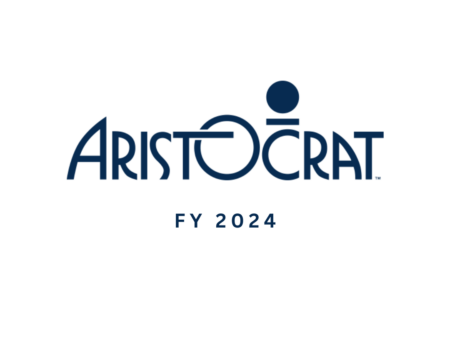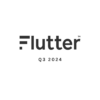In Kazakhstan, the intersection of fintech and gambling regulation has sparked significant controversy and concern among industry stakeholders. The proposed law to regulate gambling transactions, particularly through the establishment of the Unified Accounting System (UAS), has raised red flags within the fintech and payment sectors.
Overview of the Proposed Legislation
The legislation, currently advancing through its final reading, introduces the Unified Accounting System (UAS). This entity is slated to oversee market participants, process payments, maintain a single electronic wallet, and manage settlements with clients. One of the contentious aspects of the proposal is the imposition of up to 1.5% commission on all transactions, targeting a market where regulated transactions exceed 1.2 trillion tenge annually.
Echoes of Past Controversies: The Betting Accounting Center (BAC)
The introduction of the UAS draws comparisons to the previously considered Betting Accounting Center (BAC), which faced withdrawal in 2021 following a corruption scandal involving a Vice-Minister. Critics of the UAS highlight concerns over transparency regarding its structure and ownership, questioning the potential for similar issues to resurface.
Central Bank Opposition and Alternative Proposals
The National Bank of Kazakhstan, the country’s central bank, has expressed staunch opposition to the UAS. They argue that the proposed entity duplicates existing regulatory functions without enhancing transaction security or bolstering consumer protection. In response, the central bank has developed its own reform proposal, advocating against the introduction of a monopoly entity like the UAS.
Industry Voices and Alternative Reform Plans
Representatives from Kazakhstan’s payments industry have voiced their apprehensions, presenting an alternative reform plan that aims to preserve competition and stability within the sector. They warn that the proposed legislation could disrupt the payments landscape, diminish competitive dynamics, and cast a negative shadow over Kazakhstan’s business environment.
A spokesperson from the payments industry emphasized, “The proposed legislation risks stifling competition and sends a troubling message to both domestic and international stakeholders about Kazakhstan’s commitment to fair business practices.”
Broader Regulatory Context: Kazakhstan’s Stance on Online Gambling
The legislative debate unfolds amidst Kazakhstan’s ongoing efforts to regulate online gambling rigorously. In 2021, the government took stringent action by blocking access to LinkedIn due to the platform’s hosting of online casino advertisements. This move underscores Kazakhstan’s strict regulatory stance on gambling-related activities, signaling its commitment to control the industry’s influence within its borders.
Advocating for Balanced Regulation
Stakeholders from the fintech and payment sectors advocate for a balanced and transparent regulatory approach. They stress the importance of ensuring market stability, fostering healthy competition, and safeguarding consumer interests. The emphasis remains on crafting regulations that promote industry growth while upholding stringent standards of governance and compliance.
As deliberations proceed, the fintech and payment sectors urge policymakers to consider the long-term implications of the proposed legislation on Kazakhstan’s economic landscape and international reputation.
FAQs About the Fintech Concerns Over Kazakhstan’s Proposed Gambling Transaction Regulation
1. What is the Unified Accounting System (UAS) proposed in Kazakhstan’s new legislation?
The UAS is a new entity intended to manage market participants, process payments, maintain a single electronic wallet, and handle settlements with clients involved in gambling transactions. It aims to centralize control and impose transaction fees in a market where annual transactions exceed 1.2 trillion tenge.
2. Why are fintech and payment companies concerned about the UAS?
Fintech and payment companies are concerned about the UAS due to its potential to disrupt the payments sector and reduce competition. They fear that the proposed 1.5% commission on transactions could impact profitability and hinder market dynamics.
3. What is the history behind the Betting Accounting Center (BAC) and how does it relate to the current UAS proposal?
The BAC, a similar initiative, was withdrawn in 2021 following a corruption scandal involving a Vice-Minister. Critics draw parallels between the BAC and the UAS, raising concerns about transparency, governance, and potential misuse of regulatory powers.
4. Why does the National Bank of Kazakhstan oppose the UAS?
The National Bank opposes the UAS, arguing that it duplicates existing regulatory functions without improving transaction security or enhancing consumer protection. Instead, the bank advocates for alternative reform proposals that do not include creating a monopoly entity like the UAS.
5. How has Kazakhstan’s government responded to online gambling activities in recent years?
Kazakhstan has taken a strict stance on online gambling, exemplified by its blocking of LinkedIn due to online casino advertisements in 2021. This reflects the government’s commitment to regulating and controlling gambling-related activities within its borders.
6. What are the concerns raised by industry stakeholders regarding the UAS proposal?
Industry stakeholders, particularly from the fintech and payment sectors, express concerns that the UAS could harm competition, undermine business environment reforms, and deter foreign investment. They advocate for a balanced and transparent regulatory approach that supports market stability and fosters industry growth.
7. How are stakeholders advocating for consumer protection amidst the UAS debate?
Stakeholders emphasize the importance of robust consumer protection measures amidst the UAS debate. They argue for regulations that prioritize safeguarding consumer interests while ensuring fair business practices and regulatory transparency.
8. What is the outlook for the proposed legislation concerning the UAS?
The proposed legislation, currently in its final reading, faces continued scrutiny and debate. Stakeholders hope for amendments that address industry concerns and align with broader economic goals, emphasizing the need for collaborative policymaking to achieve regulatory balance.


















